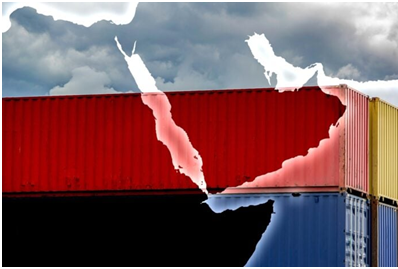
According to an
assessment published by the United Nations Conference on Trade and Development
(UNCTAD) in February, many ships are now avoiding the canal and changing their
routes from the Bab al-Mandeb Strait to the Cape of Good Hope and choosing a
longer route. The evaluation states that
the number of ships passing through the Suez Canal in January 2024 decreased by
42 percent.
This situation also
causes companies’ insurance risks to increase significantly, with many
experiencing insurance premiums increasing 7 to 10 times as high as previously
assessed.
In the report, it was
stated that fluctuating freight markets and interrupted deliveries put global
maritime transportation under pressure..
It was stated in the
report that there are very few precautions that a merchant ship can take to
protect itself against weapons, and that changing the route and moving away
from the area is considered the safest way, especially for ships at high
risk….Additionally, in the statement, it was pointed out that there are some
issues that ships that choose or must pass through the Red Sea can pay
attention to, and the following was noted:
“First of all, the
recommendations, warnings and updates of official authorities need to be strictly
followed. For example, regarding the security steps that can be taken by ships,
there have been some recommendations from the US Navy regarding night travel
and turning off AIS. There are also recommendations in the Red Sea, Gulf of
Aden, Indian Ocean and Arabian Sea.” Guidelines published by international
authorities, such as Best Management Practices for Deterring Piracy and
Improving Maritime Security in the Sea (BMP5), should be followed and
implemented.
Choosing alternative routes doesn’t really decrease insurance costs
much.
In the report, it was
stated that choosing alternative routes to avoid paying high premiums brings
almost the same cost, and that choosing safer but longer routes to avoid areas
where there are safety concerns causes an increase in fuel consumption and
travel time.
The report emphasized
that the security risk in the Red Sea has now reached a crisis point, and
said, “While some ship owners and charterers prefer to pass through the Cape
of Good Hope as a medium-term strategy, others rely on the Houthis’ statement
that they are targeting ships with connections to Israel, the United Kingdom
and America, and the Red Sea.” It was added that “Searching for alternative markets and
regions should also be seen as an option to distribute risks and reduce
dependence on the Red Sea.” Expressions were used.